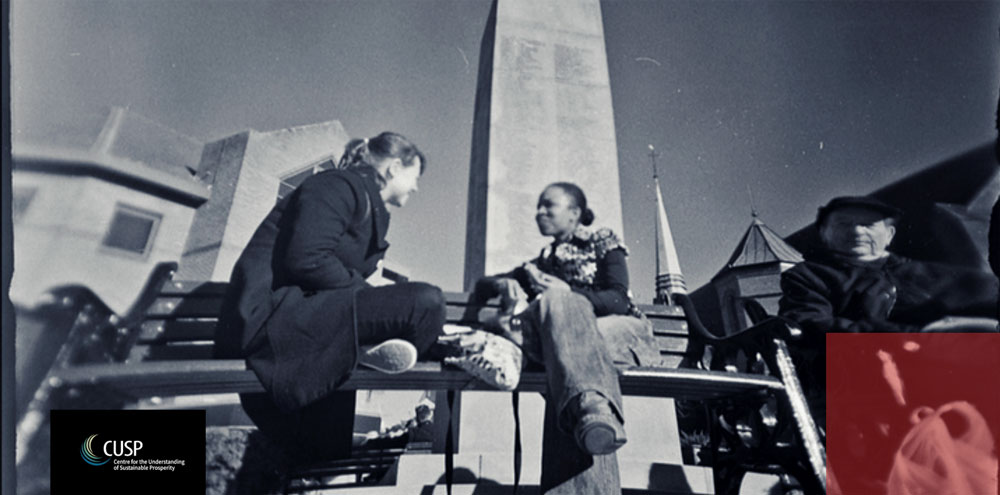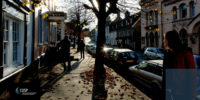What makes for a good life in Woking?
Research and Workshop Report
Sue Venn and Kate Burningham | January 2021

A basic premise of CUSP is that the consumption patterns that characterise current day societies are environmentally unsustainable and require a shift to lower carbon lifestyles. However, any strategy that requires such a change can only be successful if people still feel able to live a ‘decent’ or a good life where they are capable not only of providing food and shelter for themselves and their families but also to participate effectively in the life of society.
As part of this work we have been speaking to people in different places and neighbourhoods to explore how visions of the ‘good life’ and ‘good work’ emerge in the context of their everyday lives. We are looking for how aspirations for living well may vary, but also whether there are any commonalities so that we may understand how people can live well and equitably, but in a way that is also environmentally sustainable. We have therefore conducted our research in three diverse case study sites – Stoke-on-Trent, Woking and Hay-on-Wye.
We chose Stoke-on-Trent as a post-industrial city which has areas of social disadvantage, but which also has a rich cultural heritage; Woking which is often portrayed as an affluent commuter town and Hay-on-Wye as a rural market town on the Welsh/English border.
Our research in Woking commenced with an in-depth case study of the town, comprising desk-based research and interviews with representatives of a variety of local organisations community groups, charities, and the local council. Our aim was to gain a clearer historically and contextually based understanding of the town, and to help in identifying the key issues which impact on local people.
Our plan for the next phase of the research was to conduct a series of focus groups with a range of residents to elicit views on what it means to live well in the town and what might be improved. However, the onset of Covid-19 and accompanying restrictions meant that it was not possible to meet in groups, so we instead conducted a series of individual interviews over the telephone, or via online platforms.
In total we conducted 25 in-depth interviews with 19 females and 6 males, who ranged in age from early 20’s to mid-80’s. Participants were mixed in terms of living alone or in families, working or retired, and were from different parts of the town and surrounding districts.
During these interviews we explored a variety of issues related to: perceptions of place; participation in the community; local culture; ability to be involved and influence local decisions; employment and education opportunities and regeneration, change and stability in the area.
We subsequently analysed the interviews by exploring emerging themes within and across them to identify key issues, both positive and negative, which people identified as being important in relation to living well in Woking currently and in the future. In presenting these research findings and workshop discussions we emphasise that we are sharing participants own narratives and perspectives.
The report is available for download in pdf. If you have difficulties accessing the paper, please get in touch: info@cusp.ac.uk.
Citation
Venn S and K Burningham 2021. What makes for a good life in Woking? A research and workshop report. Guildford: Centre for the Understanding of Sustainable Prosperity.


